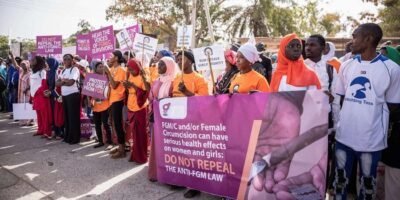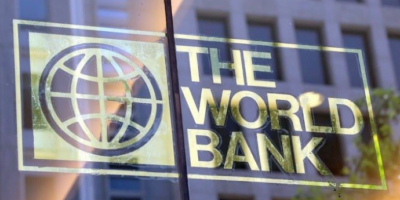IMF: 20 Sub-Saharan African Countries In Debt Distress, High Risk Of Debt Distress

- Nigeria not listed despite huge public debt burden
The International Monetary Fund (IMF) has warned that debt vulnerabilities remains elevated in Sub-Saharan Africa, with no fewer than 20 countries in the region either at high risk of debt distress or already in debt distress.
The Head of the Regional Studies Division in the African Department of IMF, Papa N’Diaye who disclosed this in a new podcast released by the multilateral lender, said debt burden in the region was very heavy at a time when the social and development needs are very large.
Unsustainable debt could lead to debt distress, where a country is unable to fulfill its financial obligations and resorts to debt restructuring.
Although the IMF chief did not list the 20 African countries in debt distress or high risk of debt distress, the most recently published data indicated that eight countries in the world were in debt distress, 30 at high risk, 24 at moderate risk, and seven countries at low risk of debt distress.
African countries in high risk of debt distress were listed then as Burundi, Cabo Verde, Cameroon, Central African Republic, Comoros, Djibouti, Ethiopia, The Gambia, Ghana, Guinea Bissau, Kenya, Malawi, Sierra Leone, Zambia,
Of the eight countries in debt distress globally, all but Grenada are from Africa. They include Chad, Congo Republic, Mozambique, Somalia, South Sudan, Sudan and Zimbabwe.
The IMF official said the debt service as a ratio to revenue has been increasing, adding that the debt burden is very heavy at a time when the social and development needs are very large.
Despite its N39.556 trillion ($95.77 billion) public debt profile as at December 31, 2021, and over 80 per cent debt service-to-revenue ratio, Nigeria is neither classified as a nation in debt distress nor high risk of debt distress.
N’Diaye said:
So for countries in the region, the space to deal with the impact of the war in Ukraine is very limited, and there will be a need to make difficult choices. First, for us, the priority is really for countries to help the most vulnerable populations mainly through targeted transfers, if possible, especially those countries that have good social safety nets.
Those that don’t have those safety nets could resort to food subsidies and tax cuts. But these will definitely need to be contained both in scope and in time, given the limited fiscal space that countries have.
He stressed that Sub-Saharan African countries would need to try to create more room by improving domestic revenue mobilisation, a s well as making sure that they get the best bang for their bucks by increasing the efficiency of public spending.
According to him,
Sub-Saharan African economies were growing very strongly in 2021. We were expecting the region’s average growth to come out at around 3.7 per cent for 2021. It turned out to be 4.5 per cent. And most of that positive surprise, or that momentum, started in the second half of the year.
But what the war in Ukraine has done, is to put a halt on that momentum. It led to a significant increase in commodity prices, more volatility in global financial markets.
He said inflation pressures have increased quite a lot, adding:
We are now seeing inflation in double digits for the region as a whole over, I think, 11.5 per cent within 2021. We are expecting it, if you look at the period average, to go towards 12.25 percentage points.
And this is the first time since 2009 that we have this double- digit projection for inflation. And it reflects mainly higher food prices and higher energy prices.
And as you can imagine, this will have a big impact on the most vulnerable in the region, increase poverty and potentially could raise social tensions. So for the policy makers in the region, like central bankers in particular, dealing with this inflation and pressure won’t be easy because of the… also the impact that the policies could have on growth.

Justin Nwosu is the founder and publisher of Flavision. His core interest is in writing unbiased news about Nigeria in particular and Africa in general. He’s a strong adherent of investigative journalism, with a bent on exposing corruption, abuse of power and societal ills.













